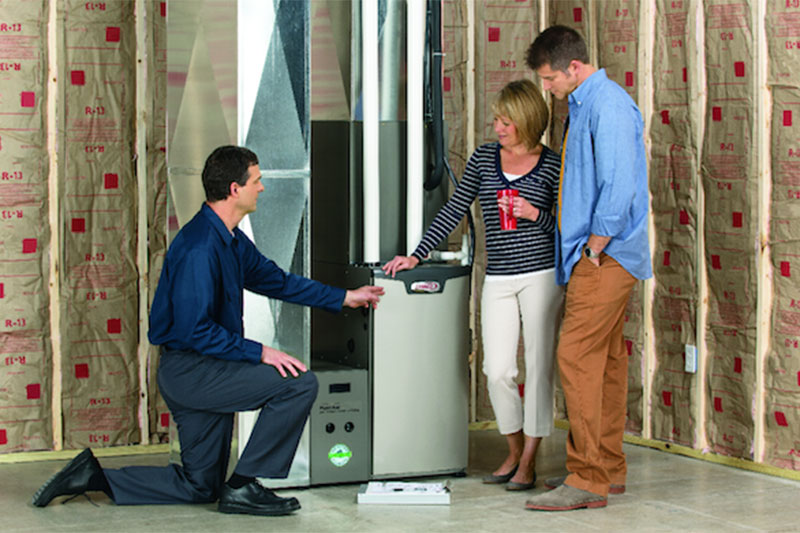
Natural gas furnaces need adequate space and airflow to work right.
Your furnace can overheat if it doesn’t have enough space. It also makes it challenging for our professionals to accomplish furnace repair.
Annual furnace maintenance is essential to keep your system working well. A regularly serviced furnace may work more efficiently, which could reduce your energy bills.
Related: How Does Furnace Maintenance Impact the Energy Efficiency of Your Home?
Maintenance often helps us discover problems before they start. This could help lower future repair bills and likely lengthen the life of your furnace.
So how much clearance should your system really have?
How Much Space Will a Furnace Take Up?
If you’re updating your basement or enclosing your furnace room, you should consult manufacturer instructions and Beaverton laws for clearance guidelines.
As a general recommendation, your furnace should be 30 inches away from furnace room walls on all sides. This allows our service experts to conveniently replace it.
You also need to make sure the area has enough airflow and ventilation, especially if you have an aging furnace with a metal flue.
Related: Furnace Service or Furnace Replacement: What to Consider
This type of furnace draws combustion air from the nearby area. If there’s not enough air, dangerous gas fumes and deadly carbon monoxide could leak into your home.
If your furnace is placed in a small room with a gas water heater, you may need to put in extra openings. This could involve a fully louvered door or vents in the walls.
You don’t need to assess airflow and ventilation as much if you have a modern, high-efficiency furnace with PVC piping. Your furnace uses one pipe as an exhaust vent and the other to draw in air.
Keep Hazardous Items Away from Your Furnace
Although furnace rooms are often also used for laundry and storage space, you should keep yours free of items that could be fire hazards.
This includes:
- Clotheslines
- Cleaning or laundry products
- Gasoline, paint or paint thinner
- Rags and papers
- Wood scraps and sawdust
- Used filters
If you have a cat, situate your litter box elsewhere. Cat urine contains ammonia, which could corrode your furnace’s heat exchanger. Plus, the furnace could move the smelly odors all over your home.
You should also regularly sweep around your furnace to block dust from building up.
Related: Is it Time for Furnace Service or Replacement?
Request a Free Quote for Furnace Service
Whether you have to have furnace replacement or regular maintenance in Beaverton, All Solutions Heating & Cooling can expertly meet your needs. Our highly trained technicians can fix any heating equipment model or brand.
Call us at 971-245-2459 or use our online scheduler to set up an appointment right away.



